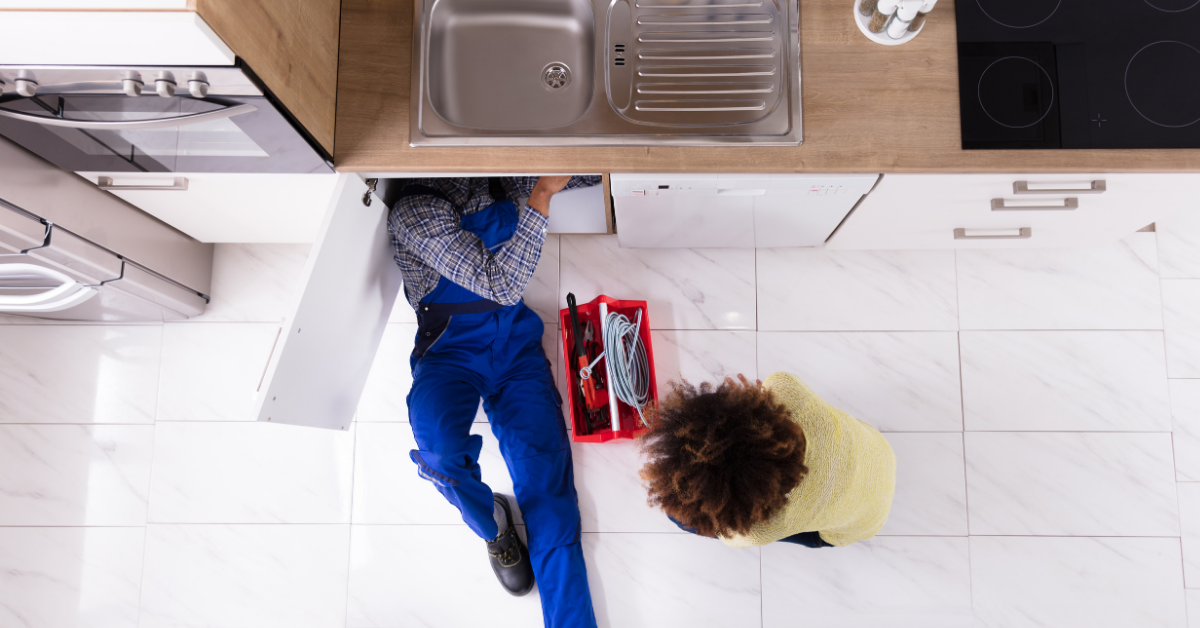On National Hug a Plumber Day, Keep Your Plumbing in Top Shape with These 5 Tips
Written by Donegal Corporate Communications
April 22, 2021

April 25th marks National Hug a Plumber Day, a time to celebrate the homeowner’s superhero, who comes to the rescue when our pipes and drains need it most.
It’s also the perfect time to reevaluate your own home habits and double down on preventative plumbing maintenance. Water damage claims are reportedly on the rise, and growing at a faster rate than any other components of homeowners insurance.
According to Insurance Business America, a report prepared by Verisk Analytics’ ISO unit found that one in 50 homeowners filed a water damage claim each year between 2013 and 2017. Additionally, ISO reported, the total amount of insurance payouts for water damage reached $13 billion in 2017, with the average claim costing around $10,000.
Plumbers have kept the water flowing since ancient Rome. But as much as we appreciate these drain defenders, we’d rather them not have to prioritize our plumbing. With these 5 tips, you can prevent and stave off future plumbing problems before they snowball into costlier issues down the road.
- Know where your water valves are located: For your main water valve, check inside first. According to Mr. Rooter Plumbing, water shut off valves are often found on a wall near the front of your house, in a basement or crawlspace. For homes built on a slab, check your garage or near the water heater. Not finding it inside? Head outside! It could be buried underground, near the street. Look for a round or rectangular metal cover flush near the grass or sidewalk. It might be labeled “water meter” to help you identify it. Minor plumbing problems, including washing machine hose leaks and overflowing toilets, won’t require you to shut off water to the whole house. Instead, simply shut off the affected water supply by locating the valve behind the appliance (or under the sink) and turning it off clockwise.
- Be conscious of what’s going down your drain- especially in the kitchen: The National Kitchen & Bath Association advises you to never pour grease down the drain. Furthermore, if you have a garbage disposal, avoid putting the following foods down the drain: uncooked carrot and potato peels, broccoli stems, corn cobs or husks, asparagus and other fibrous foods. Avoid washing coffee grounds down the drain, as well as tea bags and egg shells. And, be cautious of pasta and rice. Both can be added to the disposal slowly, though it’s safest to dispose of them in the trash or compost. In the shower and tub, try to avoid hair going down the drain.
- Save money by regularly checking for leaks: Leaks that are let go can worsen over time, causing additional water damage. Stay on top of drips and make repairs as needed. Georgia-based High Priority Plumbing and Services advises checking shower and faucet handles to make sure no water drips when the handles are turned to the off position, and checking underneath your sinks for water stains or drips when the water is running. Additionally, inspect all exposed pipes and appliances- including your refrigerator and disposal- for leaks. Visible signs of a general pipe leak include stains on walls and ceilings, or puddles of water. High Priority Plumbing advises installing a drip tray underneath your water heater and washing machine to help reduce any damage from a future leak.
- Regularly inspect your water heater: With proper care, a residential water heater can last upwards of a decade. Because of its frequent, daily use, the National Association of Realtors stresses the importance of checking your water heater monthly for possible problems. They advise lowering the temperature setting to 115 F by adjusting the dial knob or the thermostat behind the electric water heater, to prevent it from overheating. If you can’t hear a gurgling sound, check the temperate and pressure, as this could mean that no water is being released to the drain tube. In such a case, a replacement may be necessary. Drain your water heater annually to semi-annually to remove sediment, which over time, can make it less effective, High Priority Plumbing & Services says.
- Don’t skip your annual tune-up: Once a year, your entire plumbing system should be inspected by a master plumber for any problems problems. While many smaller issues are easily mitigated on your own, only a skilled technician has the keen knowledge to identify and fix complicated problems before they turn into plumbing disasters.
